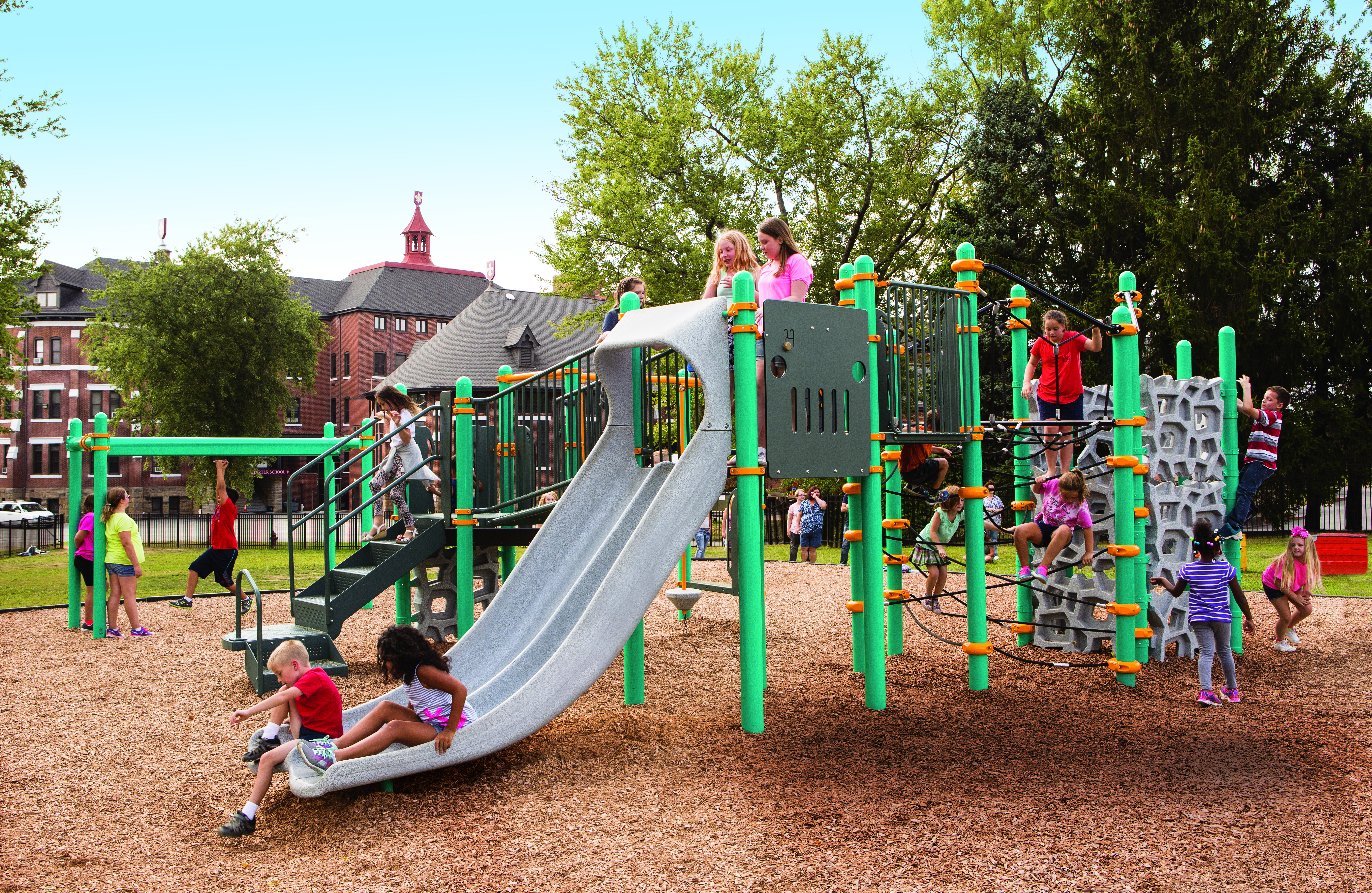When you think about the most important part of a child’s day, what comes to mind? Is it reading? Science? Math or history? What about outdoor play?
Children will likely mention outdoor play as their favorite activity, and new research shows that this free time is actually a fundamental component to their future development and host to numerous educational opportunities.
More Than Just Exercise
Researchers for years have hypothesized about the link between the reduction in free play and the rise of childhood obesity, but new research also indicates a link between children’s ability to engage in free play and their overall development.
A recent meta-study by the University of Minnesota’s Institute of Child Development, commissioned by Landscape Structures Inc., a Delano, Minnesota-based commercial playground equipment manufacturer, finds that “children’s early experiences and the settings they inhabit play a powerful role in shaping the adults they will become.”s
Unstructured play provides children the opportunity to practice key social, cognitive and physical skills.
The research draws from a wide body of social scientific analyses, case studies and examinations of play and playground behavior. Educators, child psychologists, playground designers and the American Academy of Pediatrics all contributed to the report.
The findings show that when left in unstructured play, children spend roughly 80 percent of their time on the playground engaging in important activities such as social, physical and pretend play. Any or all of these activities have been shown to further a child’s future development.
The manner in which playtime is spent is nearly as important as the amount of time spent.
Well-designed playgrounds have proven to be a uniquely flexible play setting with equipment that supports social and imaginative play while also supporting children with diverse needs and ability levels.
Toddlers, for example, appreciate the physical challenge of climbing a few stairs while older children will set their sights on the taller portions of the structure.
Parents Advocate for More Playtime
Landscape Structures surveyed parents of children 12 years and younger to understand their attitudes on the value of unstructured play. Topics ranged from opportunities for free play to important life skills gained on the playground.
More than half of parents responded that they think children today have fewer opportunities for play than children 20 years ago. Parents reported that their children get one hour or less of unstructured play time each day. Almost two-thirds of those polled think the ideal amount of daily playtime is between one and two hours.
Parents advocate for unstructured play, too. Even in today’s 24/7 world, more than three quarters of parents polled agreed that children with adequate time for free play grow up to be better contributors to society.
Educators and child development experts agree that play is vital to children’s cognitive, social/emotional and physical development and growth.
While they may be stressed and over-scheduled themselves, today’s parents recognize the value of free, unstructured time for their children’s overall health and well-being.
Modern life takes a toll on children. But giving kids the freedom to play—to gain confidence through mastery and self-discovery—can really nurture small psyches and instill lifelong skills.
However, at the same time that the benefits of unstructured play are being expounded, the research shows the time spent in open play is under attack.
Threats to play come from myriad sources including restrictive school and work schedules, safety concerns, organized activities and the rise of passive entertainment options including television and video games.
These factors combined are seen as the key reasons children’s unstructured play has dropped by 25 percent since 1981.
Pushing Back for Play
While the importance of structured learning can never be discounted in a child’s educational path, the opportunity for outdoor free play should not be seen only as a break.
When asked about important life skills, parents surveyed considered play and creativity of similar importance to academics and critical thinking.
Most mothers (92 percent) rated play and creativity as moderately or very important, compared to 84 percent of fathers.
Persistence was considered a top skill for children of all ages to learn during playtime. Creativity was more likely to be chosen for younger children, while leadership was likeliest for older children.
Parents reported that sharing, imagination and creativity were the skills most often exhibited by their own children on the playground.
Even more, Landscape Structures’ research findings show children actively learn while in play and that the skills they learn cater to their continual development.
The educational lessons don’t end on the playground; they simply become a lot more fun.
The meta-study and survey are part of Landscape Structures’ Shaped by Play campaign. Learn more about the campaign and request your copy of the research whitepaper at www.playlsi.com/whitepapers.














